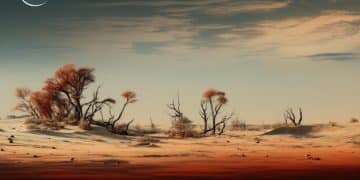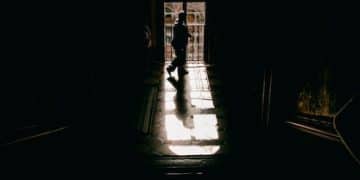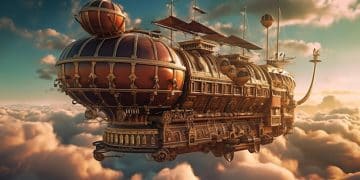Western Revival: Modern Novels Reinterpreting the Classic Genre
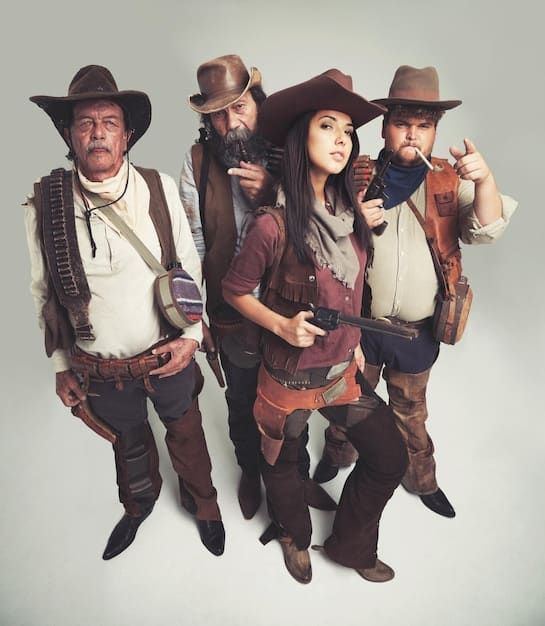
Western’s Revival explores how contemporary novelists are reimagining the Western genre, challenging traditional themes and stereotypes while incorporating diverse perspectives and modern sensibilities.
The classic Western, with its rugged heroes and vast landscapes, has long captivated audiences. But the genre has evolved significantly. Western’s Revival examines how modern novelists are breathing new life into this iconic genre, reshaping its narratives and characters for a contemporary audience.
Exploring the Enduring Appeal of the Western Genre
The Western genre holds a unique place in literary history. Its themes of adventure, survival, and the clash between civilization and wilderness continue to resonate. While the traditional Western often presented a romanticized and sometimes problematic view of the American West, its core elements remain compelling.
But why does this genre continue to captivate readers?
The Allure of the Frontier
The Western’s appeal lies, in part, in its exploration of the frontier. It’s a world where individuals are tested, and the stakes are high. The vast, untamed landscapes provide a perfect setting for stories of courage, resilience, and the struggle for survival.
Moral Ambiguity and Complex Characters
Many modern Westerns move beyond simplistic portrayals of good versus evil. They delve into the moral complexities of the characters, exploring their motivations and flaws. This makes the narratives more nuanced and engaging.
- Exploring the struggles of marginalized communities in the West.
- Examining the psychological impact of violence and trauma.
- Deconstructing the myth of the stoic, unemotional cowboy.
- Presenting diverse perspectives on historical events.
The enduring appeal of the Western genre stems from its adaptability. It provides a canvas for exploring timeless themes through the lens of a specific historical period. Modern novelists are leveraging this adaptability to create stories that are both entertaining and thought-provoking.
Deconstructing Classic Western Tropes
Modern Western novels often deliberately challenge and subvert traditional tropes of the genre. This deconstruction allows authors to offer fresh perspectives and address historical inaccuracies and harmful stereotypes.
How do these novels reshape familiar elements?
Revisiting the Heroic Cowboy
The iconic cowboy figure is often reimagined in modern Westerns. He may be flawed, morally ambiguous, or even an anti-hero. This contrasts sharply with the idealized image of the traditional Western hero.
Challenging Gender Roles
Female characters are often given more agency and complexity in modern Westerns. They are no longer relegated to secondary roles but become central figures in the narrative, driving the plot and challenging societal expectations.

The Myth of Manifest Destiny
The concept of Manifest Destiny, the belief that American expansion was divinely ordained, is critically examined in many modern Westerns. The novels explore the devastating consequences of westward expansion on Native American populations and the environment.
- Examining the legacy of colonialism and its impact on the West.
- Giving voice to the experiences of Indigenous peoples.
- Exposing the violence and injustice that were often glossed over in traditional Westerns.
By deconstructing classic tropes, modern Western novelists are creating more authentic and inclusive stories that resonate with contemporary readers.
Spotlighting Diverse Voices in the New West
One of the most significant aspects of the Western’s Revival is its commitment to representing diverse voices and experiences that were historically marginalized in the genre. This includes stories of Native Americans, African Americans, Asian Americans, and other underrepresented groups.
Why is this shift so important?
Reclaiming Narratives
By centering the experiences of marginalized communities, modern Westerns are reclaiming narratives that have been silenced or distorted for too long. This allows for a more complete and nuanced understanding of the history of the American West.
Challenging Historical Erasure
Many traditional Westerns have perpetuated a sanitized version of history, ignoring the contributions and struggles of people of color. Modern novels are actively working to correct this historical erasure by foregrounding their stories.
- Exploring the complex relationships between different ethnic and racial groups in the West.
- Giving voice to the challenges faced by immigrants and other newcomers.
- Examining the impact of systemic racism and discrimination.
The inclusion of diverse voices enriches the Western genre and makes it more relevant to a wider audience. It also helps to challenge harmful stereotypes and promote a more inclusive understanding of American history.
The Influence of Historical Accuracy in Modern Westerns
A distinguishing feature of the Western’s Revival is a greater emphasis on historical accuracy and detail. Modern novelists are conducting extensive research to ensure their stories are grounded in reality.
What does this commitment to accuracy entail?
Meticulous Research
Authors are delving into primary sources, historical documents, and oral histories to gain a deeper understanding of the time period and the people who lived in the West. This meticulous research informs every aspect of their writing, from character development to setting descriptions.
Authentic Portrayals
Modern Westerns strive for authentic portrayals of daily life, customs, and cultural practices. This includes accurate depictions of clothing, tools, and technology, as well as the social and political dynamics of the time.
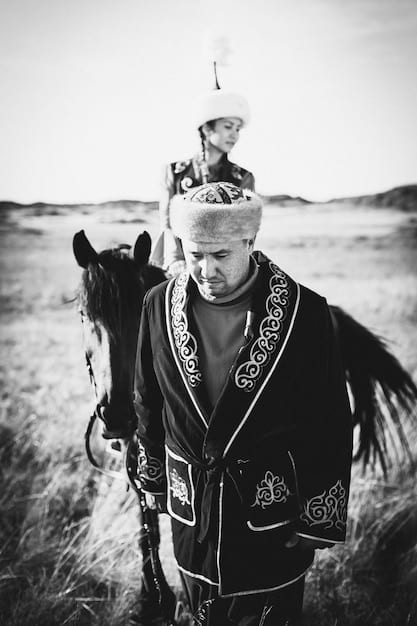
Moving Beyond Romanticism
By focusing on historical accuracy, modern Westerns move beyond the romanticized and often inaccurate depictions of the past found in traditional Westerns. They present a more realistic and complex view of the American West.
- Accurately depicting the roles and responsibilities of women on the frontier.
- Showcasing the diverse skills and knowledge of Native American tribes.
- Providing a nuanced perspective on the economic and political forces that shaped the West.
The commitment to historical accuracy enhances the credibility and impact of modern Western novels, making them both entertaining and educational.
Modern Themes in a Classic Setting
While rooted in a specific historical period, modern Westerns often explore themes that are relevant to contemporary society. This allows authors to use the genre to address important issues and engage with current debates.
How do these novels connect the past to the present?
Environmentalism and Conservation
Many modern Westerns grapple with themes of environmentalism and conservation, highlighting the importance of protecting natural resources and preserving the wilderness. This reflects a growing awareness of the environmental challenges facing the planet today.
Social Justice and Equality
As mentioned earlier, contemporary Westerns frequently address issues of social justice and equality, giving voice to marginalized communities and challenging systems of oppression. These stories resonate with contemporary movements for social change.
Identity and Belonging
The theme of identity is central to many modern Western novels. Characters often struggle to define themselves in the face of adversity and to find a sense of belonging in a constantly changing world. This is a universal theme that speaks to readers of all backgrounds.
- Discussing the complexities of immigration and cultural assimilation.
- Exploring the challenges of navigating personal identity and cultural heritage.
- Addressing the lasting impact of trauma and resilience in overcoming adversity.
By exploring modern themes in a classic setting, contemporary Western novelists are able to challenge readers to think critically about the past and its relevance to the present.
The Evolving Landscape of Western Literature
The Western’s Revival underscores the dynamic and ever-changing nature of literature. Genres are not static; they evolve in response to cultural shifts, social movements, and the perspectives of new generations of writers.
What does the future hold for the Western genre?
Breaking Down Boundaries
Modern Westerns are increasingly blurring the lines between genres, incorporating elements of science fiction, fantasy, and horror. This experimentation allows for new and exciting possibilities within the genre.
Embracing Innovation
Writers are also experimenting with narrative structure, character development, and thematic exploration, pushing the boundaries of what a Western novel can be. This innovation keeps the genre fresh and engaging.
A Genre for Everyone
By embracing diversity, historical accuracy, and modern themes, the Western genre is becoming more inclusive and appealing to a wider audience. This ensures that the Western will continue to be a vital part of the literary landscape for years to come.
- The exploration of unique historical settings and events.
- The rise of independent Western publishers.
- The influence of film and television on Western literature.
The Western’s Revival is a testament to the enduring power of storytelling and the ability of literature to adapt and evolve. As long as there are writers willing to challenge conventions and explore new perspectives, the Western genre will continue to thrive.
| Key Element | Brief Description |
|---|---|
| 🤠 Cowboy Reimagined | Flawed heroes replace traditional stereotypes. |
| 📢 Diverse Voices | Stories of marginalized groups are now centered. |
| 📜 Historical Accuracy | Meticulous research brings realism to the narrative. |
| 🌎 Modern Themes | Relatable to today’s audiences. |
Frequently Asked Questions
▼
A modern Western novel reinterprets classic Western themes by incorporating diverse perspectives, challenging stereotypes, and prioritizing historical accuracy. It often explores contemporary social issues within the traditional Western setting.
▼
Diversity allows for a more complete and nuanced depiction of the American West. It ensures that previously marginalized voices are heard and that the genre reflects the experiences of all who lived there.
▼
Modern Westerns often deconstruct classic tropes, feature more complex characters, and critically examine the historical context of the American West. Classic Westerns are focused on black and white characters.
▼
Common themes include environmentalism, social justice, identity, and the impact of colonialism. These themes allow authors to connect the past with present-day issues and make the story relevant.
▼
Historical accuracy has enhanced the credibility and impact of Western novels. It provides a more educational experience. It moves past inaccurate depictions from traditional Westerns and provides more depth.
Conclusion
Western’s Revival is not just a trend; it’s a transformation. By embracing diversity, historical accuracy, and modern themes, contemporary novelists are revitalizing the Western genre and making it relevant to a new generation of readers. The classic Western elements are transformed, which results in more relatability.

